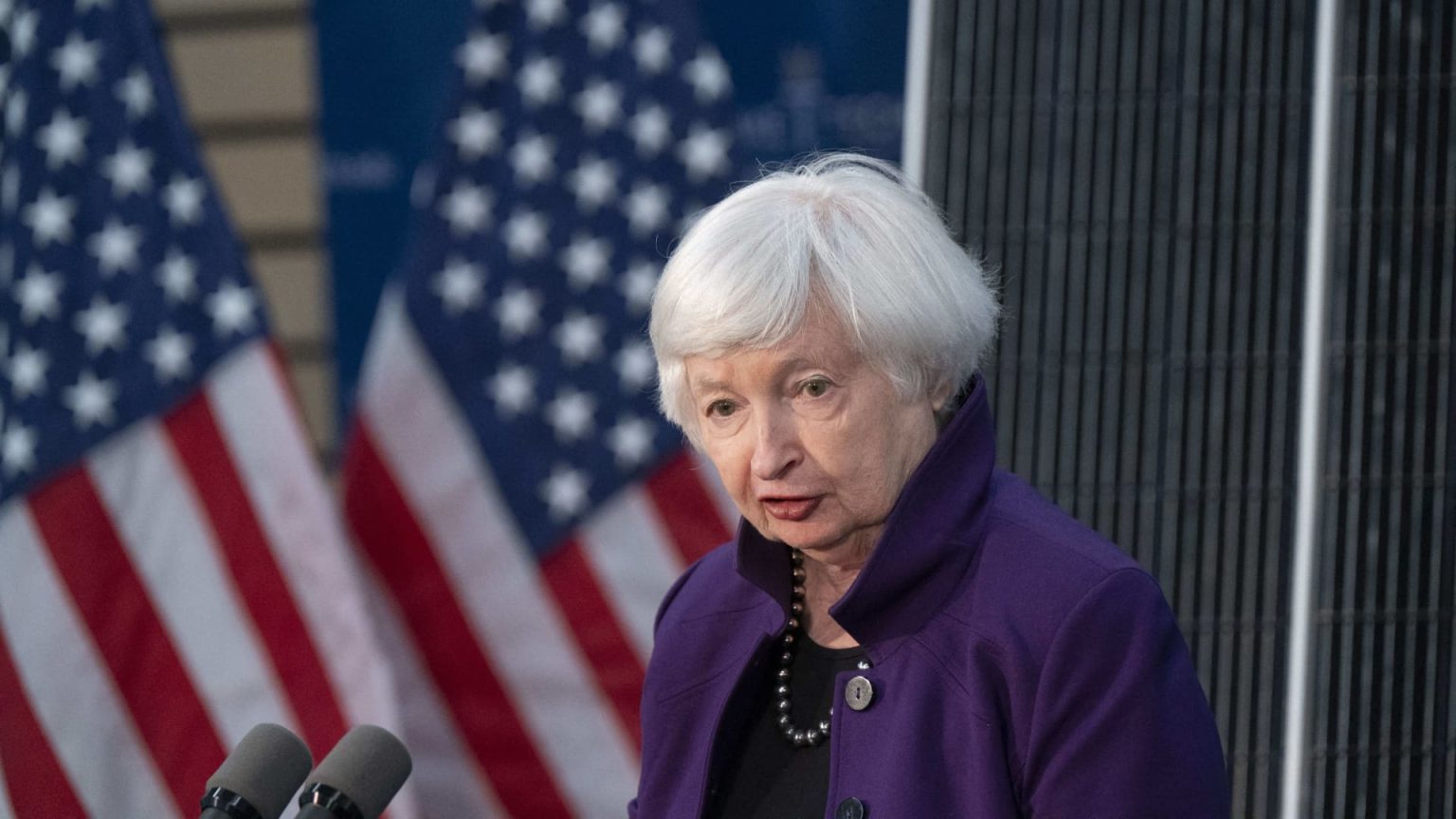Former Treasury Secretary Janet Yellen has made a significant prediction regarding the economic consequences of President Donald Trump‘s tariffs, asserting that they will likely lead to increased prices for consumers and a decline in average household incomes. In an interview on CNBC’s “Money Movers,” Yellen indicated that tariffs could generate inflation rates exceeding 3% year-over-year, even amidst a trend of slowing inflation in the U.S. economy. Her comments arrive during a time of uncertainty surrounding the implementation and impact of these tariffs.
| Article Subheadings |
|---|
| 1) Impending Inflation Concerns Due to Tariffs |
| 2) Impact on Household Income |
| 3) Recent Trends in Inflation Data |
| 4) The Federal Reserve’s Perspective |
| 5) Political Reactions and Wider Implications |
Impending Inflation Concerns Due to Tariffs
In her predictions, Janet Yellen emphasized the potential for tariffs imposed by Donald Trump to significantly spike inflation rates. She indicated that these tariffs could push the annual inflation rate to rise to at least 3%, potentially even higher, citing ongoing uncertainties regarding their exact implementations. “I definitely expect that we’re going to see them impact pricing,” Yellen stated, highlighting a consensus among many economic analysts regarding the inflationary pressures that tariffs typically exert on consumer prices. The logic behind this stems from the increased costs that businesses incur when importing goods, which they often pass on to consumers in the form of higher prices.
Impact on Household Income
Alongside the expected rise in inflation, Yellen projected a corresponding decline in average household incomes. She noted an estimate suggesting that households could see a reduction of approximately $1,000 in their annual income due to the cascading effects of tariffs. “It could be greater than that, depending on how things play out with the tariff program,” she commented, indicating that the situation remains fluid. This reduction in income could have substantial implications for consumer spending, which constitutes a significant portion of the U.S. economy. If households find themselves with less disposable income, their ability to spend on goods and services may contract, further influencing economic growth negatively.
Recent Trends in Inflation Data
Yellen’s remarks come at a time when the U.S. Bureau of Labor Statistics has showcased a surprise in inflation trend patterns, revealing that inflation rates have been rising less than anticipated in recent months. This conflicting information allows President Trump and his allies to attack the Federal Reserve, blaming them for high-interest rates amid seemingly easing inflation. In a press conference, Trump referred to Federal Reserve Chair Jerome Powell as a “numbskull,” expressing his frustration that the Fed has not acted more aggressively to lower rates. Critics of the tariffs assert that there is little evidence to suggest they are impacting inflation negatively, suggesting a divergence between political narratives and economic data.
The Federal Reserve’s Perspective
Yellen, who has a wealth of experience from her time as the Federal Reserve Chair from 2014 to 2018, expressed broader concerns about the potential consequences of tariffs. The Federal Reserve, according to her, faces significant uncertainty regarding how tariffs will affect labor market spending and inflation trends. “I would expect them to remain firmly in latency territory,” Yellen mentioned, implying that the Fed might adopt a cautious approach as they assess the evolving economic landscape. Perceiving tariffs and their implications, Yellen highlighted the risks of second-round effects, including wage increases that could feed into overall inflation expectations, subsequently complicating the Fed’s policy decisions.
Political Reactions and Wider Implications
Political reactions to Yellen’s statements reflect a deeply polarized environment surrounding economic policymaking in the U.S. While Trump and his allies argue against the inflationary effects of tariffs, various economic experts and politicians express skepticism about the administration’s view. The ongoing discourse fosters critical discussions surrounding the intersection of tariffs, inflation, and economic growth. As economic indicators fluctuate, leaders and policymakers must navigate the complex ramifications of both domestic and international trade policies, shaping the overall financial landscape moving forward.
| No. | Key Points |
|---|---|
| 1 | Yellen predicts tariffs will increase inflation rates above 3% year-over-year. |
| 2 | Average household incomes could decrease by approximately $1,000 due to tariffs. |
| 3 | Recent data shows U.S. inflation rate rising less than expected. |
| 4 | The Federal Reserve is cautious regarding the uncertain impacts of tariffs. |
| 5 | Political rhetoric on tariffs emphasizes diverging views on economic impact. |
Summary
In summary, the potential economic ramifications of President Donald Trump‘s tariffs are a source of concern for former Treasury Secretary Janet Yellen, who predicts increasing inflation and declining household incomes if these tariffs are enacted. The landscape remains unclear as data suggests lower-than-expected inflation rates, fuelling political tensions and debates on economic policy. As policymakers navigate these challenges, understanding the interplay between tariffs, inflation, and household incomes is essential for fostering economic stability in the near future.
Frequently Asked Questions
Question: How do tariffs impact inflation?
Tariffs increase the cost of imported goods, which can lead businesses to raise prices for consumers, contributing to higher inflation rates.
Question: What does a decline in household income indicate?
A decline in household income can signify reduced consumer spending capacity, which may negatively affect economic growth as households cut back on expenditures.
Question: Why is the Federal Reserve cautious about tariffs?
The Federal Reserve is cautious about tariffs due to uncertainty over how they will affect inflation and the labor market, which complicates policy decisions regarding interest rates.


